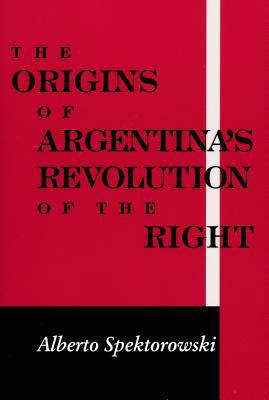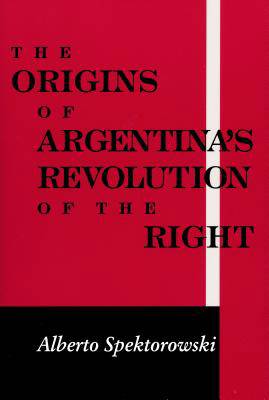
- Afhalen na 1 uur in een winkel met voorraad
- Gratis thuislevering in België
- Ruim aanbod met 7 miljoen producten
- Afhalen na 1 uur in een winkel met voorraad
- Gratis thuislevering in België
- Ruim aanbod met 7 miljoen producten
Omschrijving
The Origins of Argentina's Revolution of the Right traces the ideological roots and political impact of Argentine right-wing nationalism as it developed in the 1930s and 1940s. In this spirited book, Alberto Spektorowski focuses on the attempt by a new brand of nonconformist intellectuals to shift the concept of Argentine nationalism from its liberal incarnation to an integralist-populist one and, simultaneously, to change Argentina's path of development from liberalism to a "third road" of economic autarky.
Spektorowski maintains that the "third road" developed in 1930s Argentina through the juxtaposition of two apparently opposing types of anti-liberal ideological currents: a right-wing authoritarian current reliant upon counterrevolutionary European sources, and an anti-imperialist, populist current. He shows that both of these wings rejected liberal institutions, bourgeois society, cosmopolitanism, and old-type conservatism, and became profoundly anti-imperialist. Both defended a "pro-Axis" neutrality during World War II, and both set the ideological stage for Argentina's sociopolitical shift of the 1940s. Spektorowski concludes that both of these currents produced a single nationalist ideology that became the intellectual framework in which the "repertoire" of political values of the 1943 military regime and Peronism was subsequently elaborated.
Specificaties
Betrokkenen
- Auteur(s):
- Uitgeverij:
Inhoud
- Aantal bladzijden:
- 280
- Taal:
- Engels
- Reeks:
Eigenschappen
- Productcode (EAN):
- 9780268020118
- Verschijningsdatum:
- 6/10/2003
- Uitvoering:
- Paperback
- Formaat:
- Trade paperback (VS)
- Afmetingen:
- 156 mm x 229 mm
- Gewicht:
- 426 g

Alleen bij Standaard Boekhandel
Beoordelingen
We publiceren alleen reviews die voldoen aan de voorwaarden voor reviews. Bekijk onze voorwaarden voor reviews.












